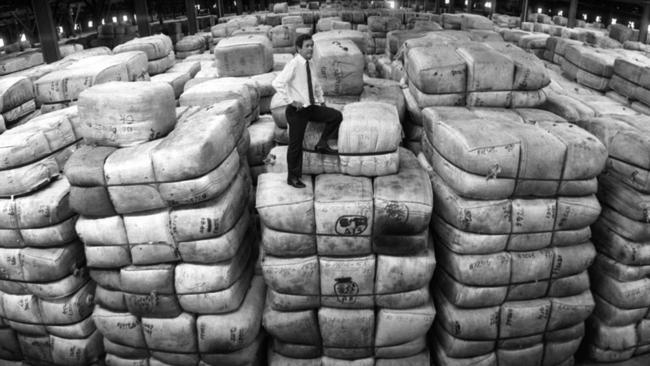Cabinet documents reveal Primary Industries Minister John Kerin’s secret
EXCLUSIVE: SECRET cabinet documents reveal Primary Industries Minister John Kerin in 1990 was not confident the wool reserve could be sustained.

EXCLUSIVE: THE minister who axed the wool reserve price scheme 25 years ago told Cabinet months before that the 700c-a-kilogram floor price would almost inevitably have to be lowered, despite publicly assuring the industry it never would.
Secret cabinet documents reveal Primary Industries Minister John Kerin privately told Cabinet in September 1990 that he was not confident the reserve could be sustained and may need to be lowered despite public assurances it was “immutable, rock solid, absolutely granite-hard”.
Mr Kerin’s assurance was the key to getting buyers back into the market, which had been floundering under record production and the loss of major buyers the USSR and China.
The documents reveal Mr Kerin was not 100 per cent confident the 700c floor price could be sustained, a view that proved correct when he axed it a few months later in February 1991.
In his submission to Cabinet, just released under the 25-year secrecy rule, Mr Kerin said he would continue to reassure the industry that the Government was committed to the 700c floor price.
He added, however: “A further reduction in MRP (minimum reserve price) at some stage cannot be entirely ruled out as a policy option.
“If ABARE’s (Australian Bureau of Agricultural and Resource Economics) credible worst-case scenario were to unfold such a course of action may become inevitable.
“However, in dealing with speculative markets it is essential to deny that possibility ... Accordingly, I have been indicating that the Government has compete confidence in the 700c floor price and will not be further reducing it.”
Despite his private reservations, Mr Kerin wanted to give the floor price scheme every chance to work, asking for Cabinet approval to remove borrowing limits on the Australian Wool Corporation, which ran the scheme.
But again he told Cabinet the AWC would have to justify any further borrowings with evidence they were taking steps to cut production.
The AWC subsequently devised a quota scheme to restrict the amount of wool that could be sold in 1991-92 and a flock culling scheme to reduce supplies.
Despite his private view the floor price may have to be lowered, Mr Kerin, then went on a global wool marketing mission with AWC chairman Hugh Beggs to assure buyers the 700c floor was solid. They encouraged buyers to return, even offering the former Soviet Union credit to buy.
Mr Kerin told The Weekly Times last week he was prepared to give the reserve price scheme every chance and he still believed at that time it was possible the 700c floor could work.
But that was contingent on buyers returning.
But, in the end, they didn’t, with the former Soviet Union disintegrating and unable to resume buying, despite the offer of credit.
“The market was spooked and some key buyers like Germany believed it (the reserve price) could not be held,” Mr Kerin said.
The result was buyers continued to sit on their hands and the AWC continued to stockpile wool. By February it was clear the scheme was finished.
Mr Beggs said last week he did not know of Mr Kerin’s private view at the time, but he was “not surprised” given the crisis the industry was in and it was “ fair enough”, he said.
He believed Mr Kerin gave every opportunity for the industry to trade out of its difficulties under the 700c floor until it was clear in February the scheme was dead in the water.
The USSR’s failure to resume buying was the tipping point, Mr Beggs said.
